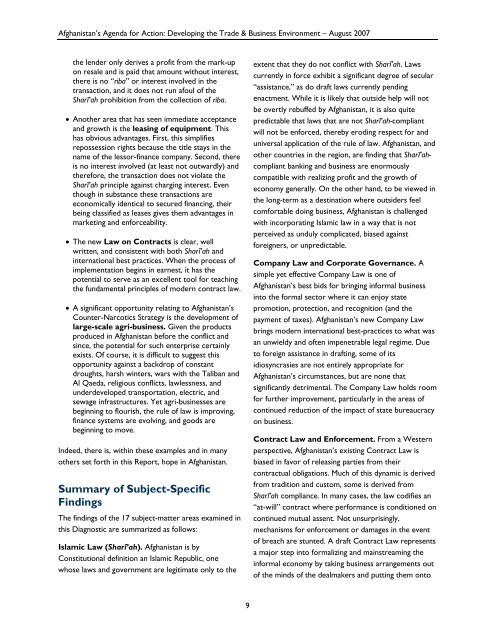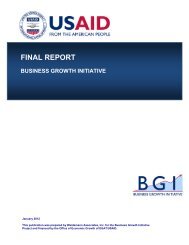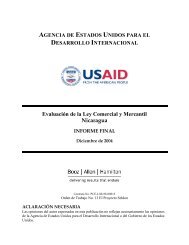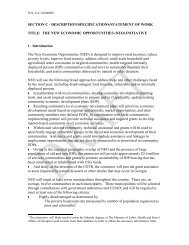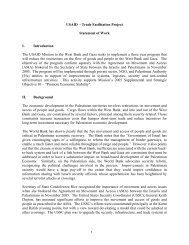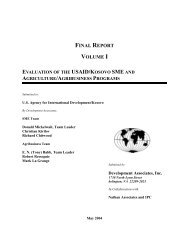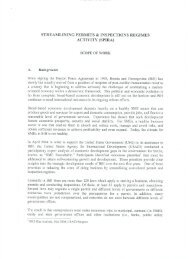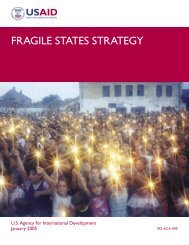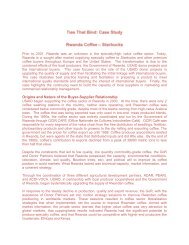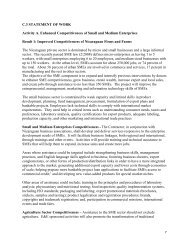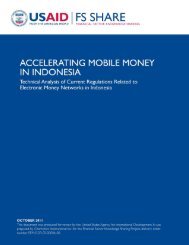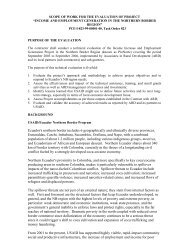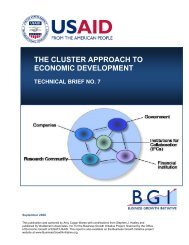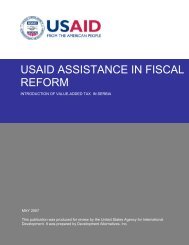Afghanistan's Agenda for Action - Economic Growth - usaid
Afghanistan's Agenda for Action - Economic Growth - usaid
Afghanistan's Agenda for Action - Economic Growth - usaid
Create successful ePaper yourself
Turn your PDF publications into a flip-book with our unique Google optimized e-Paper software.
Afghanistan’s <strong>Agenda</strong> <strong>for</strong> <strong>Action</strong>: Developing the Trade & Business Environment – August 2007the lender only derives a profit from the mark-upon resale and is paid that amount without interest,there is no “riba” or interest involved in thetransaction, and it does not run afoul of theSharī’ah prohibition from the collection of riba.• Another area that has seen immediate acceptanceand growth is the leasing of equipment. Thishas obvious advantages. First, this simplifiesrepossession rights because the title stays in thename of the lessor-finance company. Second, thereis no interest involved (at least not outwardly) andthere<strong>for</strong>e, the transaction does not violate theSharī’ah principle against charging interest. Eventhough in substance these transactions areeconomically identical to secured financing, theirbeing classified as leases gives them advantages inmarketing and en<strong>for</strong>ceability.• The new Law on Contracts is clear, wellwritten, and consistent with both Sharī’ah andinternational best practices. When the process ofimplementation begins in earnest, it has thepotential to serve as an excellent tool <strong>for</strong> teachingthe fundamental principles of modern contract law.• A significant opportunity relating to Afghanistan’sCounter-Narcotics Strategy is the development oflarge-scale agri-business. Given the productsproduced in Afghanistan be<strong>for</strong>e the conflict andsince, the potential <strong>for</strong> such enterprise certainlyexists. Of course, it is difficult to suggest thisopportunity against a backdrop of constantdroughts, harsh winters, wars with the Taliban andAl Qaeda, religious conflicts, lawlessness, andunderdeveloped transportation, electric, andsewage infrastructures. Yet agri-businesses arebeginning to flourish, the rule of law is improving,finance systems are evolving, and goods arebeginning to move.Indeed, there is, within these examples and in manyothers set <strong>for</strong>th in this Report, hope in Afghanistan.Summary of Subject-SpecificFindingsThe findings of the 17 subject-matter areas examined inthis Diagnostic are summarized as follows:Islamic Law (Sharī’ah). Afghanistan is byConstitutional definition an Islamic Republic, onewhose laws and government are legitimate only to theextent that they do not conflict with Sharī’ah. Lawscurrently in <strong>for</strong>ce exhibit a significant degree of secular“assistance,” as do draft laws currently pendingenactment. While it is likely that outside help will notbe overtly rebuffed by Afghanistan, it is also quitepredictable that laws that are not Sharī’ah-compliantwill not be en<strong>for</strong>ced, thereby eroding respect <strong>for</strong> anduniversal application of the rule of law. Afghanistan, andother countries in the region, are finding that Sharī’ahcompliantbanking and business are enormouslycompatible with realizing profit and the growth ofeconomy generally. On the other hand, to be viewed inthe long-term as a destination where outsiders feelcom<strong>for</strong>table doing business, Afghanistan is challengedwith incorporating Islamic law in a way that is notperceived as unduly complicated, biased against<strong>for</strong>eigners, or unpredictable.Company Law and Corporate Governance. Asimple yet effective Company Law is one ofAfghanistan’s best bids <strong>for</strong> bringing in<strong>for</strong>mal businessinto the <strong>for</strong>mal sector where it can enjoy statepromotion, protection, and recognition (and thepayment of taxes). Afghanistan’s new Company Lawbrings modern international best-practices to what wasan unwieldy and often impenetrable legal regime. Dueto <strong>for</strong>eign assistance in drafting, some of itsidiosyncrasies are not entirely appropriate <strong>for</strong>Afghanistan’s circumstances, but are none thatsignificantly detrimental. The Company Law holds room<strong>for</strong> further improvement, particularly in the areas ofcontinued reduction of the impact of state bureaucracyon business.Contract Law and En<strong>for</strong>cement. From a Westernperspective, Afghanistan’s existing Contract Law isbiased in favor of releasing parties from theircontractual obligations. Much of this dynamic is derivedfrom tradition and custom, some is derived fromSharī’ah compliance. In many cases, the law codifies an“at-will” contract where per<strong>for</strong>mance is conditioned oncontinued mutual assent. Not unsurprisingly,mechanisms <strong>for</strong> en<strong>for</strong>cement or damages in the eventof breach are stunted. A draft Contract Law representsa major step into <strong>for</strong>malizing and mainstreaming thein<strong>for</strong>mal economy by taking business arrangements outof the minds of the dealmakers and putting them onto9


